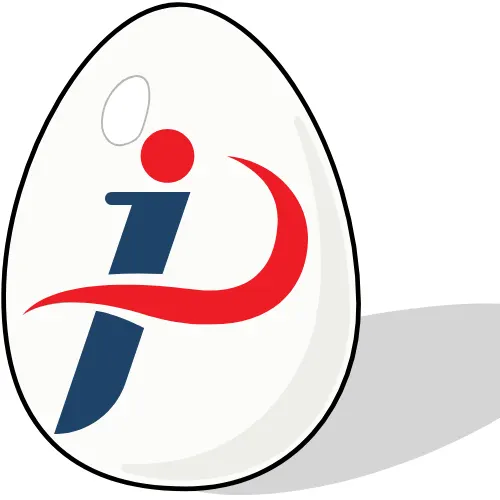Amazon has begun issuing refunds to eligible Prime subscribers as part of a $2.5 billion settlement reached with the Federal Trade Commission (FTC). According to federal officials, the company started sending automatic digital payments on November 12, with additional disbursements expected through December 24, 2025.
The payments stem from an antitrust lawsuit filed in 2023, in which regulators accused Amazon of using “deceptive tactics” to enroll millions of users into Prime memberships without their full consent — and of making the cancellation process deliberately difficult.
Amazon denied any wrongdoing but agreed in September 2025 to settle the case. The FTC says the company “has cooperated with efforts to return funds to affected consumers.”
Amazon Prime $2.5 Billion Settlement 2025
The total settlement amount is $2.5 billion, broken down as follows:
- $1.5 billion will be refunded directly to customers who were improperly charged or enrolled.
- $1 billion will go toward civil penalties and administrative costs.
Each eligible customer can receive up to $51 as a one-time refund, depending on their usage and subscription history.
“Consumers deserve clear choices and fair treatment,” said Samuel Levine, Director of the FTC’s Bureau of Consumer Protection. “This refund process ensures that those who were misled or charged unfairly will get their money back.”
Who Qualifies for a Refund?
Refund eligibility depends on both time of subscription and usage of Prime benefits. According to FTC documents, you may qualify if you meet the following conditions:
| Requirement | Eligibility Details |
|---|---|
| Subscription Period | Subscribed to Amazon Prime between June 23, 2019, and June 23, 2025 |
| Sign-Up Flow | Used checkout pages like the Prime decision page, shipping page, Prime Video enrollment, or one-page checkout |
| Prime Usage | Used three or fewer Prime benefits (Prime Video, Prime Music, etc.) in any 12-month period after signing up |
| Residency | Must be a U.S. resident |
The FTC determined that many consumers were signed up for Prime during checkout or trial offers without realizing they had consented to recurring charges.
How and When Refunds Will Be Paid?
Refunds are being sent automatically to qualifying customers between November 12 and December 24, 2025.
Distribution Methods:
- Digital Payments: Amazon is issuing most refunds through PayPal or Venmo. Recipients must accept the payment within 15 days of notification.
- Mailed Checks: If the digital payment is not accepted, or if no digital payment option is available, Amazon will mail a paper check to the address listed in the customer’s Prime account.
Checks must be cashed within 60 days of receipt.
“The process is automatic for the majority of consumers — no forms or login required,” said an FTC spokesperson. “Recipients should watch their email and payment accounts for official notifications.”
If You Don’t Receive a Refund Automatically
Consumers who meet the eligibility criteria but don’t receive an automatic payment will have an opportunity to claim their refund in 2026.
The FTC plans to open a claims process next year to ensure all eligible consumers can participate.
Here’s what to expect:
- The FTC will send out claim forms via official channels.
- You’ll need to confirm your identity and provide limited account details to verify eligibility.
- Refunds from this secondary claims process will likely be issued later in 2026.
You do not need to contact Amazon or submit an application now if you are waiting for your automatic payment.
Avoiding Refund Scams
The FTC is warning consumers to be cautious about fraudulent emails or calls related to the Amazon Prime refund.
Here’s how to protect yourself:
- No payment is required to claim your refund. The FTC will never ask for fees, gift cards, or personal banking information.
- Verify the sender: Official refund emails will come from @amazon.com or @ftc.gov domains only.
- Don’t click suspicious links or download attachments from unsolicited messages claiming to be about your refund.
If you suspect a scam, report it at ReportFraud.ftc.gov.
“Scammers often take advantage of large settlements like this,” Levine added. “When in doubt, check the FTC’s official website for confirmation before sharing information.”
Amazon’s Response
In a statement, Amazon reiterated that it “has always complied with the law” and emphasized that Prime remains a voluntary and transparent subscription program.
“We disagree with the FTC’s allegations but are pleased to resolve the matter and move forward,” the company said. “We remain focused on providing exceptional value and convenience to our customers.”
What This Means for Consumers?
The settlement marks one of the largest FTC consumer refund programs in recent years, underscoring growing scrutiny over subscription models and digital consent practices across the tech industry.
Regulators say the outcome should serve as a warning to other companies that rely on “dark pattern” design tactics — interfaces that mislead or nudge users into unwanted actions.
Key Dates and Deadlines
| Event | Date |
|---|---|
| Refund distribution begins | November 12, 2025 |
| Refund distribution ends | December 24, 2025 |
| Acceptance window for PayPal/Venmo refund | 15 days from notification |
| Check cashing deadline | 60 days after receipt |
| Claims process for remaining eligible users | Begins early 2026 |
How to Check for Your Refund?
- Watch for an official email from Amazon or the FTC confirming your refund status.
- Check your PayPal or Venmo accounts between November and December 2025.
- Visit ftc.gov/refunds for ongoing updates about the program.
Bottom Line
Eligible Amazon Prime users who were improperly enrolled or charged will soon receive refunds of up to $51, either automatically or through a 2026 claims process.
Consumers are encouraged to stay alert for official notifications — and wary of scammers — as the FTC and Amazon complete one of the largest refund distributions of the decade.

